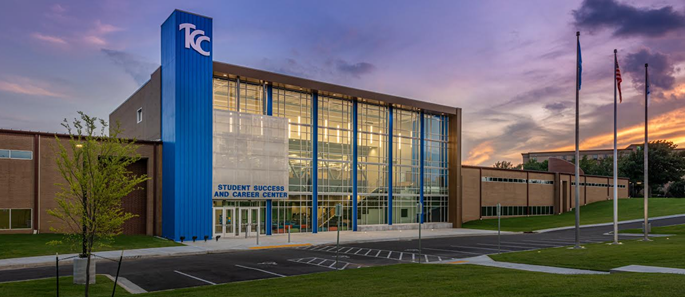
- Details
- By Native News Online Staff
Northeastern State University and Tulsa Community College have been awarded $4M through the Native American Serving Nontribal Institutions (NASNTI) program, seeking to assist low income and Native American transfer students.
The focus of this partnership is to create inclusive pathways for Native students, particularly those facing financial barriers, to transfer seamlessly between institutions. The NASNTI grant is instrumental in implementing various initiatives to ensure the success and retention of these scholars.
“We are excited to be a part of this collaboration with TCC and are eager to see the positive impact this partnership will have for our students, not only on our campuses but also in the broader community,” NSU President Rodney Hanley said.
Seamless transfers between institutions are critical for empowering students in need to make the best choices for their education. These partnerships ensure that institutions have students’ best interest in mind.
“We are grateful for our partnership with NSU in securing this transformative grant. Together, we are committed to breaking down barriers and creating pathways for Native students,” TCC CEO and President Dr. Leigh Goodson said. “This grant enables us to better serve our students, providing them with the resources and support needed to achieve their educational goals.”
According to Dr. Kendra Haggard, NSU Director of Student Engagement, the grant will allow Northeastern to create various transfer and orientation programs, as well as add two full-time positions over the next five years.
“Our goal in receiving this grant is for students to feel welcomed into the RiverHawk family and have an abundance of resources needed to successfully complete their degrees,” Haggard said. “Transfer students make up 54% of our student base so it is important that they feel confident in completing their degrees at NSU.”
Grant funds will also be used to secure student volunteers and leaders, create programs for students throughout each semester, purchase laptops for students to checkout, hold monthly events, renovate the University Center student engagement spaces and add additional individual study locations for students.
The grant is federally funded through the US Department of Education, providing grants and assistance to Native-American serving, nontribal institutions, allowing them to improve and expand their capacity to serve Native Americans and low-income individuals.
More Stories Like This
10 Years of Building Business Dreams for Indigenous WomenIchigo Foundation Awards American Indian College Fund Adult Education Program
Bard College Center for Indigenous Studies (CfIS) Hosts Annual Symposium With Keynote Speaker Miranda Belarde-Lewis on March 9–10
American Indian College Fund Announces Spring 2026 Faculty Fellow Cohort
Navajo Nation Signs $19 Million Diné Higher Education Grant Fund Act into Law
Help us defend tribal sovereignty.
At Native News Online, our mission is rooted in telling the stories that strengthen sovereignty and uplift Indigenous voices — not just at year’s end, but every single day.
Because of your generosity last year, we were able to keep our reporters on the ground in tribal communities, at national gatherings and in the halls of Congress — covering the issues that matter most to Indian Country: sovereignty, culture, education, health and economic opportunity.
That support sustained us through a tough year in 2025. Now, as we look to the year ahead, we need your help right now to ensure warrior journalism remains strong — reporting that defends tribal sovereignty, amplifies Native truth, and holds power accountable.
 The stakes couldn't be higher. Your support keeps Native voices heard, Native stories told and Native sovereignty defended.
The stakes couldn't be higher. Your support keeps Native voices heard, Native stories told and Native sovereignty defended.
Stand with Warrior Journalism today.
Levi Rickert (Potawatomi), Editor & Publisher


